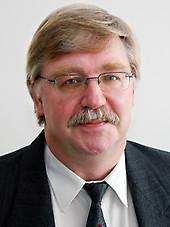Losers and winners
These elections have, as to be expected with 22 presidential candidates, many losers. Among them, however, are not only politicians and their parties, but above all the opinion pollsters.
Opinion polls are generally met with a lot of scepticism and mistrust in Guatemala, as they are mostly considered to be interest-driven and "ordered". Whether methodologically questionable or ordered, these election results are certainly not a credit to the polls.
Although many saw Sandra Torres, the candidate of the UNE (Unidad Nacional de la Esperanza), in the second round, they did not catch anything else in their surveys.
In recent weeks it was considered certain that Torres, now in the 2nd round for the third time after 2015 and 2019, and Edmund Mulet, candidate of CABAL, and third place finisher for the Partido Humanista in the 2019 elections, would make it to the 2nd round.
However, the SEMILLA candidate, Bernardo Arévalo, was not on anyone's radar as a serious contender. Very early on in the election evening, however, it became clear that this constellation for the second round of the presidential election would come as a surprise to everyone.
Compared to the 2019 elections, it is worth highlighting that the first-placed candidate is ahead of the second-placed candidate by some margin, but no longer by a difference of 10%, but only just under 4%, and the subsequent vote results from 3rd place onwards are very close.
The remaining 15 candidates scored between 0.14% (7738 votes) and 2.55% (140 706 votes). This fragmentation, which was hopeless for the majority of the candidates from the beginning, serves primarily to support the lists of deputies by means of these candidacies and in this way (there is no blocking clause) to enter the Congress, even if only with one deputy, and thus to secure the legal survival of the party.
Other losers include Zury Ríos, daughter of the former dictator Ríos Montt. Her campaign strategy was met with incomprehension from the beginning, obviously she felt sure of her cause, too sure. Finishing 6th is a hard landing in reality.
Mulet did not fare much better, who thought he was safe in the 2nd round and then only ended up in 5th place, knocked off.
The candidate of the "oficialismo", the current ruling party VAMOS, had certainly expected more chances, especially in view of his party's strong communal base. Even though he made gains in the final phase of the election campaign, it was not enough for him to make it into the run-off. However, VAMOS has by far the strongest parliamentary group in the Congress and is likely to have at least maintained its local power base.
The full-length publication is only available in German.
Topics
Change of Government in the Czech Republic: A Test for Democracy?
Mayor election in Bucharest: An unexpected, clear victory with a bitter aftertaste
Local elections in North Macedonia: Convincing victory for ruling parties
The end of the political centre?
Presidential election in Ireland continues political tradition



